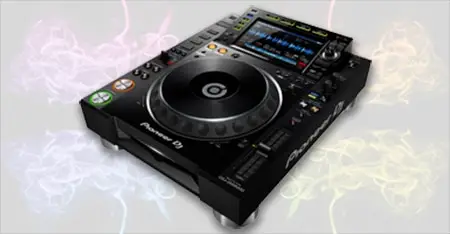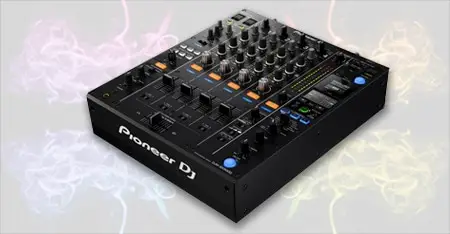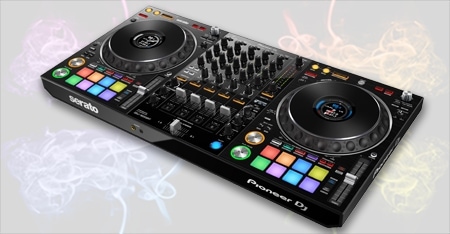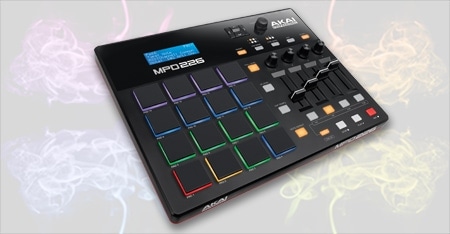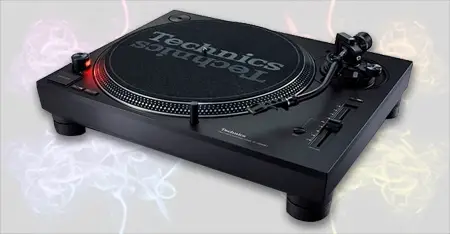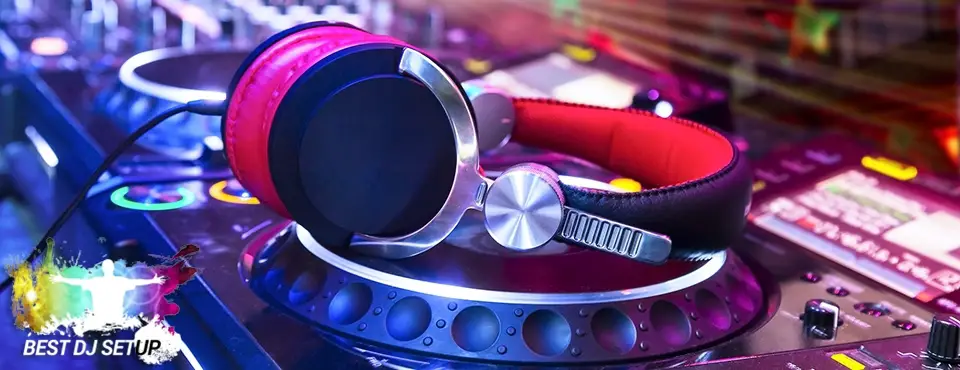
With so much misunderstanding around the fact, as well as the perception that DJing easy, it’s no wonder that people ask ‘can I make DJ a career? or even ‘is DJing a real job?’ The answer to both is yes, absolutely.
DJing is a real job and totally legitimate career. Especially for those people that are smart about it and treat DJing as a business instead of just a hobby. Not only that, but DJing can be one of the best careers.
This is because you get to indulge a passion for music, creating memorable experiences for large amounts of people.
To help you understand DJing as a career its benefits and difficulties. I’ve broken down some of the most commonly asked questions, plus included some of my own experiences as a DJ.
Can You Make a Living as a DJ?
Contents
The short answer to this is yes. DJing as a career is so flexible that you can make of it exactly what you want. Many DJs just do it on weekends, for example, as a way to earn a healthy supplementary income to their main job. Those more serious about it, and willing to spend the time to build up their brand and do marketing can make a comfortable full time living from it.
Plus, the amount of different jobs you can do as a DJ is really quite varied. Most commonly, people just think of two types of DJ gigs: Club gigs and Wedding DJ, the latter of which can play incredibly well.
While club DJing can also pay well it tends to be much more of a grind. Both to establish yourself and get to the stage where you’re commanding a decent income.
The exact steps of how to become a DJ have been broken down in detail elsewhere on this site, so I shall only go over them briefly here.
The steps required for both types of DJ, club and mobile DJ, are very similar:
- Choose a DJ name brand and register the appropriate social media accounts and websites online (there is an in-depth guide about choosing a DJ name here).
- Get a few live gigs under your belt to start building your network, and establish some experience. The best way to do this course is to do your first few gigs, absolutely free.
- Network with people in the industry and find people you can form strategic partnerships with and can funnel you bookings. For example, linking up with wedding planners, or event organizers
- Marketing. Do this by advertising in industry press or by going to conventions. For example, events conventions and wedding conventions. Update your content regularly to remain relevant and show that you are up to date with current trends.
- Over-deliver at every gig. Essentially give clients more than they expect when you do actually get a booking.
- Build on top of your network and ask for referrals.
- Slowly increase your price per gig. As you become more established gather more testimonials and increase your network.
- Be practicing always to make sure that your skills are maintained and actually increasing all the time.
As mentioned above, a good way to start DJing and become successful is to actually do it as a sideline. Even just to a part-time job.
This takes the pressure of having to earn a full-time wage straight away and allows you to be selective of your gigs. Doing so means you can establish yourself in the exact niche that you’re looking to target.
This applies to both club DJs and event/mobile DJs.
Related: Our recommended gear for both club & mobile DJs is listed here.
The Benefits of a Small City Over a Big City

One fairly common misconception is that you have to move to one of the largest cities in order to make it successful as a DJ. This kind of makes sense in that there will be more gigs, and opportunities to get bookings.
However, with that also comes increased competition, as there are likely to be many more DJs doing a similar thing to yourself. Therefore, a smaller city can actually be beneficial.
After all, it’s better to be a big fish in a small pond, instead of a small fish in a large pond.
What I mean by this is, when you are in a smaller city then you can play regularly at events that align with what you’re trying to achieve. And, aside from having to travel less, you will also become familiar to a wider range of people in your area.
These can then recommend you to friends or book you for other events. This is quite often how many large DJ has got their start. By building a fan base in their home city, who were then able to spread the word and make the DJ more attractive when they went to other cities.
Rather than sit looking at your town, thinking it’s too small, look at it as an advantage. Not, not only can you play events, but if they aren’t the range of events then you can actually be the one to start them.
This means you are essentially creating your own bookings and making yourself the go-to person for those types of events.
So when you find yourself asking, ‘Can you make a living as a DJ?’ Think outside the box.
Related: You can read how to promote yourself as a DJ by pushing here.
Don’t Limit Yourself (in Gigs or Earnings)

Instead of only limiting yourself to weddings, for example, consider whether you could actually branch out to other types of events i.e fashion shows, product launches, or corporate events.
By spreading out throughout different types of events you can increase your bookings to two or three a week instead of just one.
The reason I mentioned other types of events is that they all come with different earning potential. For example, corporate work often tends to pay a lot better than private bookings (we will discuss salary and earnings a bit further down the article).
An important question to consider before you dive headfirst into DJing is whether it truly is your passion.
Because even though there is money to be made it will require a lot of work and dedication. Plus you will have to learn how to cope with rejection as you’re building your brand.
Therefore, it becomes a lot easier if you have a true passion for the challenge and the music as it this that will keep you going when things seem to be hard.
Related: Again you can learn how to build different streams of income as a DJ here.
How Many Hours Does a DJ Work?

The answer to this question has a few more layers than people might first think. A common misconception is that a DJ only works one or two hours a week, on the day they have a booking.
People tend to think it is just showing up for your set, playing a few songs, and then you’re done. But they often neglect to remember that may be travel time included, either side of your set.
Though this is technically not be counted as work, it is still time out of your day that you’re unable to anything else. Therefore, it must be factored into your costs. In some cases, you will outright be able to charge travel expenses.
Therefore is quite likely that a DJ may actually spend an hour either side of their set, simply getting to and from the gig. This mounts up to essentially four hours… for perhaps a one or two-hour set.
And this isn’t even getting into the practice, research or preparation time. Which is actually the biggest part of what a DJ spends their time doing.
Related: Wonder if DJing takes talent? I’ve got your answer here…
To cover these in detail it is easier to break down each day’s work into individual sections…
Finding Tracks

Finding music is one of the most labor-intensive aspects of being a DJ. Thankfully, it is faster than it used to be.
Back in the day DJs used to have to go to a store and listen to different vinyls, one by one. These days, however, you can just go to various websites and click through lists of tracks, making this makes this aspect quicker.
Except, however, there is no much more music, available.
To give you an idea, stores like Beatport stocks several hundred thousand tracks. In truth, the reason that finding tracks can take so long is simply because of how much bad music there is out there.
Meaning a serious, professional DJ will sort through and listen to hundreds of tracks. Many of them will be terrible and ultimately rejected. For example, a DJ may listen to 100 tracks and only select one or two.
This means that away from the decks (see our recommended decks here), a DJ can spend several hours per week, just on finding music alone, let alone organizing and storing their tracks.
Practicing
This is another aspect that people often forget about. And it is this misunderstanding that often leads people to ask why do DJs get paid so much?
As I touched on about, it is because you are not just paying DJ for the hour or two they actually play your event. You are actually paying for the many, many hours of practice that they have put in away from your event.
And it is the whole reason they can come along, create an atmosphere and keep your crowd entertained. As a general rule, the easier your DJ makes it look than the more hours practice they to get to that stage.
A good DJ will easily spend a couple of hours per day just practicing to keep their skills on point. This is what I mean when I say that the answer to how many hours does a DJ work is not simple.
Related: I detail out how long it takes to be good at DJing here.
The truth is that for a two-hour gig on a weekend, you also have to factor in travel time, finding tracks and practicing. Meaning a DJ might actually have put in 10-20 hours that week. Just to perform cutting edge, on-trend set at the weekend.
Therefore, it’s best not to assume that even when established, you are going to earn megabucks by only working a couple of hours per week.
Even the most established, big-name DJs will spend many many hours in the studio, creating new music. A lot of which, ultimately, probably won’t be heard.
Deadmau5 (push to see his setup), for example, quite often live-streams his studio sessions. And it’s not uncommon for him to be creating music for four to six hours in a single sitting.
Love DJ gear?
So do we, check out our favorites…
Why Do DJs Get Paid So Much?

It’s because DJs do so much work behind the scenes. In fact, 90% of their work goes unseen by their audience. Therefore, its simply not fair to try and pay a DJ minimum wage only for the time they spend at your event.
By trying to low-ball it is essentially sending the message to that DJ, and the industry as a whole, that their time spent working away from the decks (see our recommended decks here) is worthless.
A good comparison that I often like to tell potential clients is graphic designers. When people try and pay low for a graphic designer they are assuming that they are paying just for the time it takes for a designer to create a logo, for example.
However, what they fail to understand is that a very experienced designer will be able to design a logo within one to two hours. But that doesn’t mean that you should pay them less.
The end result is going to be professional and be beneficial to your business. And the reason they can do this so quickly is that they have spent many hours perfecting their craft. So this has been reflected in the cost.
Related: All the different ways a DJ can make money is listed here.
Likewise, if you do choose a cheap designer, who has not put many hours in, then it may take them 10 to 20 hours to design your logo. Which in all likelihood ends up as a similar cost to the professional. Except that the client has wasted more time going back and forth making revisions etc.
Therefore when it comes to paying for any form of professional, you are really paying for the time they have spent learning.
Doctors are another good example. They are paid extremely well to just sit and tell you what’s wrong with you. In this case, you’re not paying for the 15 minutes where they listen to your symptoms and tell you what’s wrong.
You are actually paying the years of training that gives them the skills to tell you what’s wrong and what the fix is.
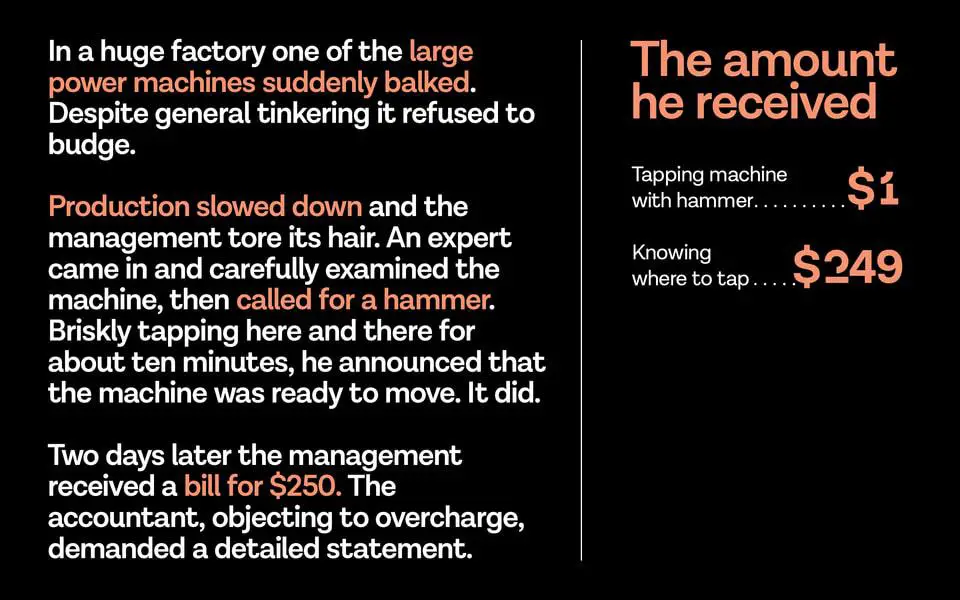
This is why DJs get paid so much because they have to put in a lot of work leading up to the gig.
And then of course, there is pressure on the night.
If a DJ does a terrible job, either at a club or at a wedding then it ruins the experience for large numbers of people. While an amazing job ensures that the crowd has a great time.
They then go away and speak highly of your event and remember your wedding with fondness.
Therefore, all of that pressure was on the DJ, so is only right that should have been factored into the price in the first place.
As the old saying goes…
“If you pay peanuts, you get Monkeys”
No matter what anyone tells you monkeys are not good DJs.
Is Being a DJ Stressful?

The truth is that yes it can be. Even despite it being one of the most fun careers someone you can have. Being a DJ can be stressful for several different reasons.
The Grind
Already discussed above is the grind of having to constantly find bookings. Even having to wade through so much shit music to find good tracks can be disheartening.
When relying on DJing as your main income source then is nothing more stressful than a lack of money. This is quite possibly the biggest factor why so many DJs give up before being able to establish themselves.
Is Being a DJ Stressful on the Night?
It can be, and for several different reasons….
- You are the main reason that anyone that is going to have a good, or terrible, night.
- This means there is pressure on you to be at the top of your game, always. Even if you aren’t feeling it, you have to push through and deliver the absolute best experience. Regardless of how you yourself are feeling.
- Technical issues happen, often.
- It doesn’t matter how well you prepare, or how well practiced you are with your setup at home. Equipment has a knack of failing when you need it most.
- This can be everything from discovering a faulty connection while setting up to speaker blowing up halfway through a gig (which has happened…). This can cause huge amounts of stress as, similar to the above, you’re being relied on to provide the party.
- I’ve actually been a festival for example where the main generator for the main stage went down. While the pressure would have been on the promoter to fix it, the DJ was then in charge of reviving an atmosphere that went to zero in a split second.
- There are, of course, things you can do to minimize the stress. For example, a professional DJ will have various backups in the event of something going wrong.
- The most basic form also the most reliable would be having a playlist or mix pre-loaded to their phone and already plugged into the system. So, if they have any technical difficulties at least they are able to keep the music going while they work on resolving the issue.
- You have to deal with silly requests and/or drunk people.
- This kind of also a continuation of the above. I myself have spent entire sets not only having to consider music playing and keeping the crowd happy but also fending off drunk people.
- Either making endless, out of place requests or even worse, spilling their drinks over the equipment. In the worst-case causing everything to meltdown.
- This can be a great expense to DJ if they have to replace their own equipment due to drunken behavior. Particularly those that work in the mobile or event DJ space.
- Hostile promoter/clients.
- This goes for any type of professional that works with clients who understandably want to get the most for their money. While experienced promoters or event organizers will be used to working with DJs, some can be difficult.
- This can include everything from making last-minute slot changes to demanding that a DJ keeps playing way beyond the allotted time.
- Again, an experienced professional DJ should be able to mitigate much of these pressures by having in-depth contracts and discussions with a client. This helps ensure that expectations are managed ahead of time.
- Travel adds an unknown element.
- One of the main benefits of making DJ a career can also be one of the biggest stresses. Traveling for work, particularly via public/commercial transport, it is the one area of the job that’s completely out of your control.
- While you can do your best to ensure that you leave and arrive on time, sometimes there is just no planning for canceled flights or trains. And there is no fun in the mad rush that follows trying to make alternative arrangements to still make the gig and keep your client/promoter happy.
- Jokers in the industry.
- It’s a sad fact in the DJing world plenty of people either don’t know what they’re doing or are out purely for themselves. They simply don’t understand that respect needs to be shown every person associated with their event.
- Unfortunately, horror stories of stranded DJs or being supplied with substandard equipment are all too common.
- And in the very worst cases, DJs just straight up not being paid after the show. It’s not rare to hear of promoters, particularly in the club world, who either disappear at the end of the night or try and offer less money than was previously agreed. Which can put a DJ in a difficult and stressful position.
- Being constantly misunderstood.
- One of the things you will always come up against is people thinking that DJing is easy and that is not considered a proper job.
- This comes from a lack of understanding about what the job actually entails and how difficult it can be. Plus the amount of time it takes to establish both the skills and the reputation needed to be a successful DJ.
- Again, with time, you learn to counter these arguments. Or, best of all, just not get involved and let people have their opinions. After all, are plenty of fans who understand and appreciate what the role of a DJ really is.
So, is being a DJ stressful? It can be, but even with all of the above said I wouldn’t consider DJ to be any more stressful than the average job.
As you gain experience you learn where things may go wrong and where people try and take advantage. Then you are able to make contingencies to ensure your DJ career is as stress-free as possible.
Where Can I DJ?
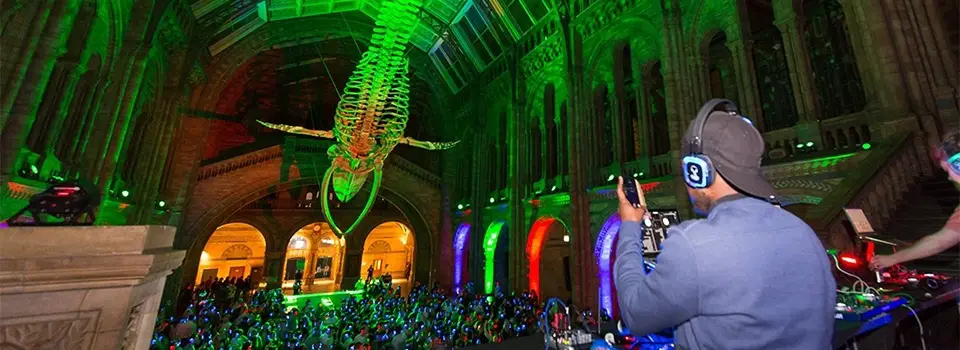
Further to the point about the city you live in affecting opportunities of where to play. Really think about options and broaden your horizons in terms of places to DJ and ways to make money. Of course, there are the obvious options spring to mind, however, there are a few more that you may not have considered.
Related: To get more gigs as a DJ, check out this article.
Particularly when it comes to ways to make money and making DJ a career. These include:
- Running workshops in places like adult learning centers, youth programs, and even private workshops
- These can be a great way to supplement your income. Especially as you can do them during the daytime when you otherwise might normally be booking DJ gigs.
- Corporate events
- Any company of a decent size will organize several events throughout the year. Therefore it can be worth building up a network as a way to get extra bookings.
- Even if a company uses you once or twice a year several of them can add a good few thousand dollars to your yearly income.
- Corporate events can include things like product launches, fashion shows, conference booths, retail shows (i.e it’s not uncommon to have a DJ playing during the day in trendy shops these days)
- Running your own events
- This is an obvious one but it pays to be smarter than most. Get other brands and companies onboard that can help promote the event and get you out to a wider audience.
- One of the most reliable options being drinks promoters especially with the upsurge in craft beer producers. This is great for forming partnerships to get your DJ brand out there, as well as that brand of beer to a wider audience.
- Get some food trucks in as well and create a mini one-day festival. You’ll then have several vendors advertising and promoting an event rather than just yourself.
- Art galleries & Museums – late-night editions
- This is another complimentary partnership as an art gallery generally has really nice spaces that are otherwise unused in the evening. Therefore it’s fairly common these days for galleries to have late-night events.
- Not only does this earn extra income but it also gives your audience an experience they otherwise would never have.
- One of my favorite examples of this the Natural History Museum in London. Where else can you get drunk, and dance the night away next to a full-size dinosaur skeleton?
- So, start by making a list of every impressive venue, art gallery, museum and theater in your town. Approach them with the idea of generating extra income for them, with the bonus of getting yourself out there as well.
Conclusion Can I Make DJ a Career? Is DJing a Real Job?
As you would have seen from the suggestions and explanations above there are huge opportunities to generate income as a DJ. This absolutely makes it a legitimate way to earn money and therefore makes it a very feasible career.
The difference between those DJs that make it, and those that don’t, is commitment and passion. While it would be nice to rely solely on your DJ skills to get recognized, and suddenly be flown all over the world, in truth it requires you to be smart. Not just with DJing but when it comes to marketing, business, and branding as well. And this is why I cycle back to the passion thing.
If you can develop a love for building and growing the business side of your DJ brand then this will give you the determination to keep going until you’re successful. So can I make DJing a career? Is DJing a real job? Yes, absolutely.
If you have the determination, the desire and treat it as such…
What next?

